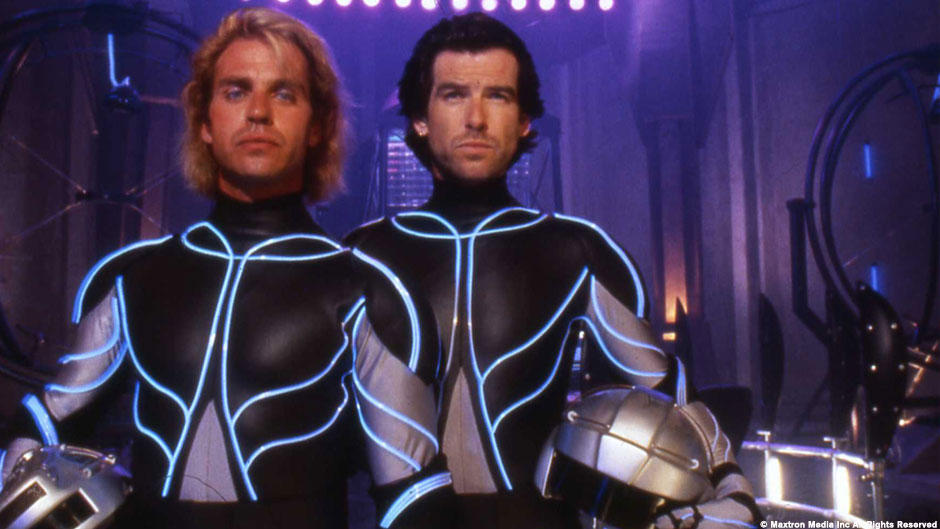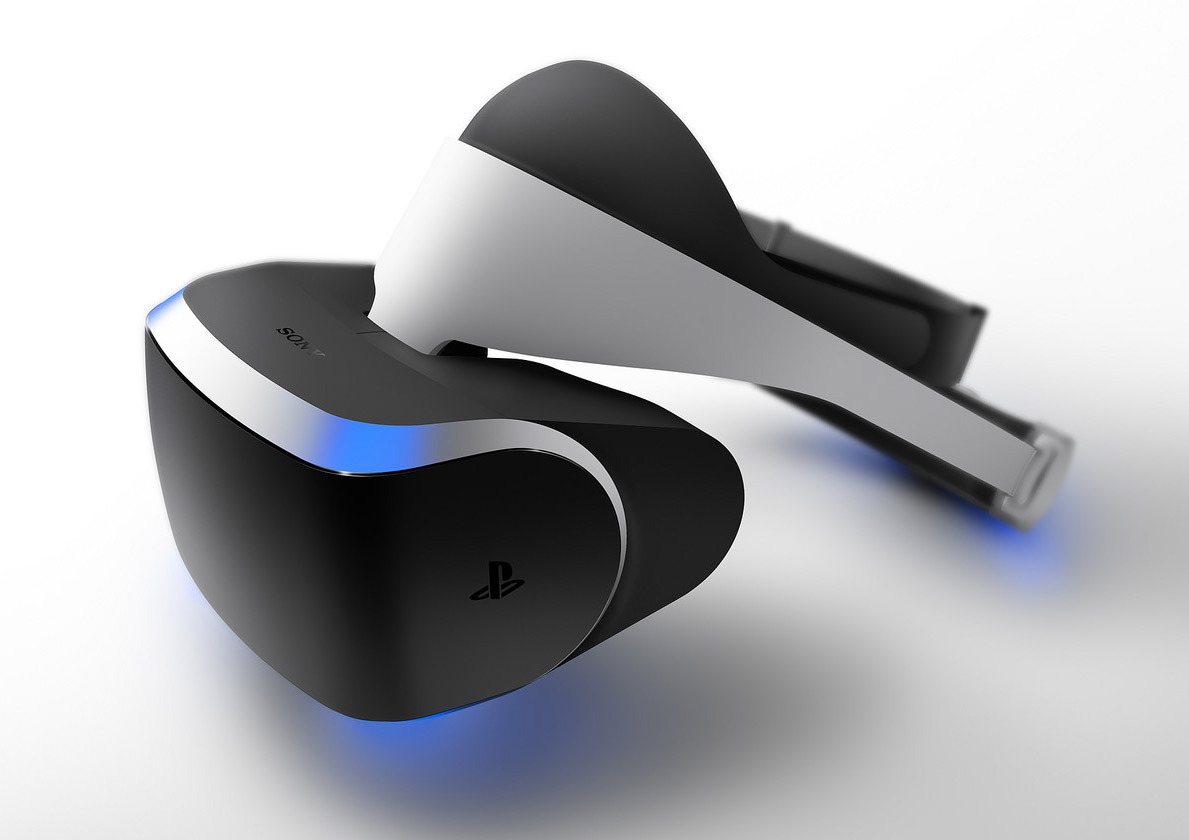VR Faceoff: Which headset should you buy?
It's Oculus Rift V HTC Vive V Project Morpheus in a triple threat match!

It seems like at every event someone is releasing their own VR headset. As we ramp up to the consumer releases of most of the headsets it's fair to say we've hit peak VR, but the technology can be expensive.
To save your hard-earned dough, we've put the big 3 to the test: Oculus Rift, HTC Vive, and Sony's Project Morpheus.
There are a few notable exceptions here. I wanted to mention the lower end of the market like Google's Cardboard or the Archos VR headset but it seems unfair to compare them to the heavyweights at the higher end of the market.
Similarly the Microsoft Hololens and Razr OSVR are both absent because they're not really direct competitors.
Also, keeping this to a trio of participants in the comparison lets me describe it as a triple threat match. Let’s get ready to ruummbbbllle!

The Games
This is the important part. We're looking at headsets to game on so it's absolutely key you get a good solid library of compatible titles.
The HTC Vive has the luck of running Steam VR with the full support of Steam, so there's a good chance a lot of the future VR hits will be compatible with the headset.
It's too early to say whether popular VR titles will be updated with support for the Vive but with Steam pouring money into it it's bound to be more important moving forwards.
Project Morpheus has the benefit of the PS4's library behind it. There's no word on whether compatibility will stretch back to cover existing titles but if so the concept of playing titles like Everybody's Gone To The Rapture could be a big draw.
Sony claims the Morpheus is finalised and it's just waiting for a strong selection of games to launch with, so there should be a good collection. Unfortunately without access to the PC titles it could find itself hampered.
The Rift is the clear winner here though. There's a solid range of titles already functioning on the device, and a bunch more work in progress titles reachable through the store.
Competing with Steam VR is still going to be an uphill struggle but now that the Rift has announced a partnership with Xbox to support Xbox One games, I can't look further than the Rift headset on the games front.
Winner: Oculus Rift Comfort & Design
Comfort & Design
The other big concern is whether you can comfortably wear the headset for any length of time.
The Oculus DK1's superpower was the ability to turn me into a sweaty achy mess after 20 minutes of play, and the big manufacturers have all taken steps to make sure that's no longer the case.
We're not seeing the final production model of the Vive yet, but it's a chunky beast. The headphones aren't built in and as a result that adds some extra weight to your head.
It's still comfortable to wear but the extra sensors on the Vive practically mandate a heavier band.
The consumer model of the Rift is a long way from the battered DK1 sat at the back of my wardrobe. While Oculus hasn't revealed exact details with regards to the weight, the multiple iterations to the design have been kind to it.
Extensive testing and redesigns have led to a headset that's well balanced by the combination of headstraps and weight distribution. The built in headphones are an excellent addition, too.
The Project Morpheus has the benefit of making you look like you're on stage at a Daft Punk concert, but the flashy design has some problems.
Last time I tried one on there was a small gap at the bottom of the headset that meant there was some light bleed throughout and I could occasionally catch a glimpse of my own feet.
In terms of comfort it has stowed some of the tech in the headset up above the glasses as a sort of helmet which takes some of the pressure off the bridge of your nose.
Winner: Oculus Rift.jpg) Cost
Cost
This one is easy. The Rift and Morpheus are looking to be around the £2-300 mark. The HTC Vive could be a little pricer based on comments about the Vive delivering a "premium" VR experience but as it's all speculative it seems unfair to really hold it against them.
The big difference here is the hardware propping them up. Both the Oculus Rift and the HTC Vive rely on you having a fairly chunky PC to play the games.
You're rendering games twice in 90fps so you'll want to budget around £600-800 to build a capable computer from scratch.
The Morpheus uses Playstation hardware to power things, which you can get for around the £300 mark right now.
There's a small conversation to be had here that many people reading this are already going to own a reasonable computer which would reduce your costs, and due to the proliferation of sales / bundles it can be cheaper to get hold of games on the PC.
Despite these genuine concerns, I'm giving the win to the Morpheus here.
Winner: Project Morpheus.jpg)
Hardware
As with the price, everything here could change in the run up to release, but all figures are quoted in good faith.
Honestly, resolution is unlikely to be an issue when you're wearing the screen on your nose. The nature of VR means if you get immersed you're likely to overlook a couple of small issues with colour or pixelation.
The Oculus Rift consumer model is looking to run at 2160 x 1200 on a single display, split across both eyes. This works out to be a "per-eye" resolution of 1080 x 1200.
The HTC Vive matches this, with a resolution of 1080 x 1200, but this Vive resolution is taken from the early dev kit so could receive an upgrade for the consumer version.
The Project Morpheus loses out here with a single screen of 1920 x 1080 (Per eye resolution of 960 x 1080) making it a little less than both competitors. This could also improve before the final launch but as it stands it’' trailing the pack.
The big deal here is frames per second. Usually I don't hold any stock with "what FPS is it running at" discussions around games, but even the vaunted 60FPS isn’t enough here.
Again, the screen is perched on the end of your nose and as a result the usually invisible flickering is much more noticeable. With this in mind, the Vive and Rift run at 90FPS. Sony's Morpheus is going to be chugging along at a silken 120FPS.
No real winners here, but a joint win between the best in class for resolution and FPS.
Winner: Oculus Rift / Project Morpheus
It seems like the Vive needs a little more work to really bear fruit, coming in second or third place in most of these categories. With Valve's money behind the project we definitely haven't seen the end of SteamVR.
The Morpheus is a solid bit of kit but is somewhat limited by the fact the PS4 is a walled garden.
Despite Playstation's commitment to bringing great indie games to the platform your experiences will still be limited by the console.
It's a very worthy second place and those of you that already have a PS4 sitting about should consider this a great entryway into the world of VR.
The one to watch here is the Oculus. The original and so far best has made the most of the extra testing time and Facebook's billions, and as a result the consumer model of the Rift has come out on top.
VR is an industry still in it's infancy of course, so this could all change in the run up to launch.
We'll probably see many more VR headsets announcing in the next 18 months, and I'm looking forward to seeing what comes next when these headsets are released to the public in 2016.
Overall: Oculus Rift